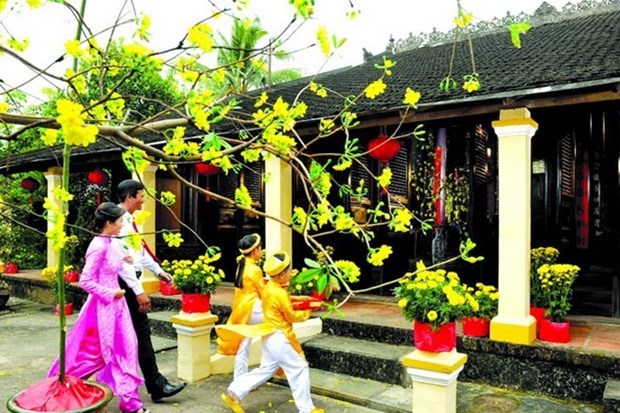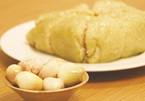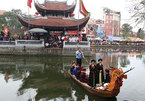 |
|
“Xong dat” (first footing) is a Tet tradition in Vietnam. (Illustrative image)
|
According to the tradition, the first guest toenter the house after midnight on the Lunar New Year’s Eve is believed to havea bearing on the family’s fortune throughout the year.
Many families ask a close friend or relative tocarry out this New Year mission.
To ensure good luck for the house, the selected“first foot” is normally required to have zodiac signs compatible with thehost. He or she should also be successful and content with life.
The invited guest usually visits the house inthe morning of the first day of the Lunar New Year, bringing with him smallgifts for the family, including lucky money in red envelops for children. Hegreets each member, wishing the old with longevity, businessmen with thrivingprosperity, and kids with good academic achievements.
The host generously welcomes the special guest,offering the family’s best New Year treats, wine or tea.
Some families choose a member to become thefirst to enter the house. In this case, the “first foot” normally goes out andcomes home after midnight with a spring branch, which represents year-roundblessings.
Due to the belief, Vietnam ese people used toavoid visiting each other in the first morning after New Year’s Eve.
The most noticeable change to the age-oldtradition is that more and more people have begun to think of it as a New Yeardelight, rather than a sight of future fortune./.

Pickled onions add flavour to Tet feast
A Tet (Lunar New Year) feast is often a carefully prepared and extravagant event held to hope for a prosperous year.

The joy and hope of Tet
If you visit or live in Vietnam anytime between mid-December until late February, you'll find yourself surrounded by the never-ending festive mood.
 Passing down through generations and continued with equal enthusiasm today, “Xong dat” (first footing), a Tet tradition in Vietnam, has always been associated with hopes for a fruitful year ahead." itemprop="description" />
Passing down through generations and continued with equal enthusiasm today, “Xong dat” (first footing), a Tet tradition in Vietnam, has always been associated with hopes for a fruitful year ahead." itemprop="description" />